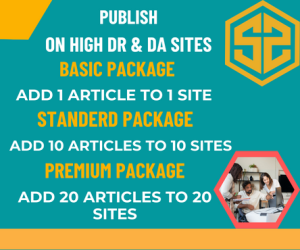In today’s environmentally conscious world, businesses are increasingly turning to renewable energy sources like solar power to meet their energy needs. Commercial solar power systems offer a sustainable solution that not only reduces carbon footprint but also brings long-term cost savings. However, with a myriad of options available in the market, choosing the right Commercial Solar Power Systems requires careful consideration. In this article, we will explore the key factors businesses should consider when selecting a commercial solar power system.
- Energy Requirements:
Businesses need to evaluate their energy needs before getting into the finer points of solar panel choosing. Businesses can calculate the size and capacity of the solar power system required to successfully fulfil their needs by knowing the average daily energy usage and the hours of peak demand. With the assistance of solar energy specialists, a comprehensive energy audit may be conducted to uncover patterns of usage and inform the sizing process. - Roof Space and Orientation:
The available roof space and its orientation play a crucial role in determining the feasibility and efficiency of a commercial solar power system. Ideally, roofs with ample unobstructed space and a south-facing orientation receive maximum sunlight exposure throughout the day, optimizing solar energy generation. However, even roofs facing other directions can be viable with proper planning and tilt adjustments. Conducting a site assessment to evaluate shading, structural integrity, and solar access is essential before proceeding with the installation. - Quality and Reliability:
A business solar power system is an investment that requires time and money, thus component quality and dependability are crucial. It is essential to select reliable solar panel manufacturers who are renowned for their dependability, effectiveness, and warranty support. High-quality parts, like mounting systems, inverters, and monocrystalline or polycrystalline solar panels, guarantee the system’s endurance and optimum performance, reducing maintenance costs and optimising return on investment (ROI) over time. - Financial Considerations:
While the environmental benefits of solar power are evident, businesses must also evaluate the financial aspects of installing a commercial solar power system. Factors such as upfront costs, available incentives, tax credits, financing options, and projected energy savings should be carefully assessed to determine the economic viability of the investment. Collaborating with solar energy providers or financial advisors can help businesses navigate the complex financial landscape and develop a cost-effective solar energy strategy. - Integration with Existing Infrastructure:
Seamless integration of the commercial solar power system with existing infrastructure is essential to ensure optimal performance and minimal disruption to business operations. Businesses should consider factors such as electrical compatibility, grid connection requirements, and potential impacts on roof integrity during the installation process. Working closely with experienced solar contractors or engineering firms can help address integration challenges and streamline the deployment process. - Scalability and Future Expansion:
As businesses grow and energy needs evolve, scalability and flexibility become critical considerations when selecting a commercial solar power system. Opting for modular and expandable solar solutions allows businesses to scale up their capacity incrementally to accommodate future growth and changes in energy demand. Additionally, choosing technologies that support advanced monitoring, control, and energy management capabilities enables businesses to optimize system performance and adapt to evolving energy landscapes effectively.
Conclusion:
Selecting the right commercial solar power system involves a comprehensive evaluation of energy requirements, roof characteristics, component quality, financial considerations, integration aspects, and scalability options. By prioritizing these factors and leveraging expert guidance, businesses can make informed decisions that align with their sustainability goals, financial objectives, and long-term energy needs. Investing in a reliable and efficient commercial solar power system not only benefits the environment but also positions businesses for long-term success in an increasingly competitive and energy-conscious market.

